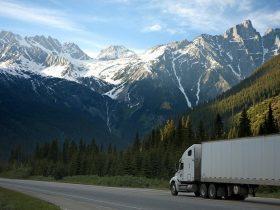From the automobiles sold today and the ancillary factors that go into owning a car, this industry has changed considerably. No doubt, cars themselves are changing. The way we think of vehicles and transportation is changing with them. Not only has the United States created a lasting car culture, but this culture is also evolving with automation, electric vehicles, cheaper insurance, and even new ways to avoid car ownership in general. However you look at the current state of the auto industry, these five advances in car ownership are changing the way we think about vehicle transportation.
Automation
While it is shown a rise in many different sectors, automation is perhaps the largest advance in car ownership. Between automation in the factories building these vehicles to the same technology being implemented into the car, the industry will never be the same. As automated vehicles become more commonplace, traffic will improve and driving will become less necessary. It also creates an environment where driving isn’t as big of a part of owning a car, which opens the door for other advancements and a reframing of what it means to be a car owner.
Electric Cars
The way the tide is moving towards electric vehicles. Not only are there more electric cars hitting the road, but it will also lessen our collective impact on the environment. As electric automobiles become more and more accessible to the average driver, the whole paradigm will shift. It’s another way that we are avoiding oil and evolving away from it. Car ownership will become cheaper as electric vehicles go down in price. Electricity isn’t as expensive as gas, especially because it is subject to complex and nonsensical markets. Electric cars will change automobile ownership in a variety of ways, most of them for the better.
Cheaper Car Insurance
As the roads become safer and both automated and electric cars become cheaper, the price of car insurance will also have to go down. Accidents will start to decrease, and car insurance will become more affordable. Roads without any accidents at all are, of course, far off. However, there are still other ways to decrease car insurance now. For example, the General auto insurance reviews will offer you a way to examine your car insurance cost—even if you are a high-risk driver or someone with accidents or a DUI. Comparing rates is a great way to lessen your car insurance costs. Car ownership is changing in many ways, with one of them being through the expense of car insurance.
Car Rental Apps
Technology is also being used to eliminate the need for car ownership in general. Now there are a variety of apps you can use to rent a car for the day or for an extended period of time. Car rental companies will suffer because of this, but these apps will become popular in cities and other places where having a car is unnecessary. In the future, with platforms providing rides and rentals with automated cars, drivers, and even helicopters, the face of car ownership will be forever changed by the advancements.
The Future of Car Ownership
While car ownership will likely always be a symbol of status, there are fewer and fewer reasons to buy one. With rideshare and car rental apps becoming popular, you can get around without having a car to weigh you down when you don’t need it. The trend is clear—people continue to flock to cities. Despite the COVID-19 pandemic having more people leave densely populated areas, the overall trend is clear. There are more opportunities in larger cities, and in large cities, car ownership can be difficult. For example, garage space in New York City is notoriously expensive. With demographics changing, the future of car ownership is uncertain.
Whether we continue to buy our own cars or opt for services that provide ease to our lives, one thing is for sure: the automobile industry is unquestionably changing. The way we think about cars is evolving. It is no longer about ownership but convenience. With rental apps, you could rent different cars for different occasions. You won’t have to be practical all the time. And with automation now on the horizon, only time will tell how these advancements will transform the transportation industry.
















Leave a Reply